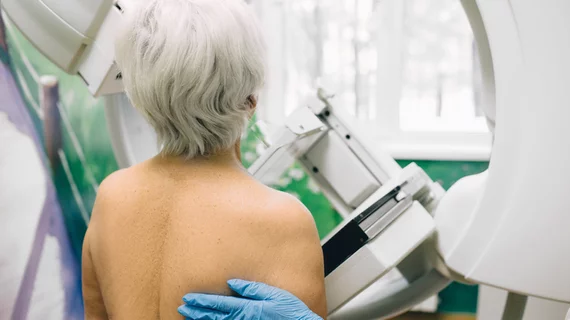Microcalcifications on mammograms tied to elevated risk of cardiometabolic disease, death
Detecting microcalcifications (MCs) in women who undergo mammograms could help predict their risk of cardiometabolic diseases, according to new data published in the European Heart Journal.
In the study, high mammographic density was linked with less cardiometabolic disease risk, mostly in women without pre-existing cardiometabolic diseases, while women with a low breast density are at increased risk for cardiometabolic diseases.
Researchers analyzed mammograms from 57,867 women and 49,583 of their sisters who participated in the Karolinska Mammography Project for Risk Prediction of Breast Cancer (KARMA) study in Sweden between 2011 and 2013.
“We found that a higher number of microcalcifications were associated with an increased risk for multiple cardiometabolic diseases, particularly in women with pre-existing cardiometabolic diseases,” wrote lead author Felix Grassman, PhD, with the department of medical epidemiology and biostatistics at the Karolinska Institutet in Sweden, and colleagues.
The team observed that MCs are linked to an increased prevalence and incidence of cardiovascular and coronary artery disease—and they are also seen in women with chronic renal failure, suggesting that they are tied to a variety of cardiometabolic diseases.
“Notably, in women with pre-existing cardiometabolic disease, more MCs were associated with increased relative risk for subsequent cardiometabolic diseases," the authors wrote. "In particular, each additional MC was significantly associated with increased risk for diabetes mellitus, hypertension, congestive heart failure, cardiac dysrhythmias and cardiac conduction disorders, ischemic heart diseases, peripheral vascular diseases, and heart valve disorders."
The absolute risk of developing any cardiometabolic diseases within five years was 57.92% for women with a pre-existing condition and MCs and 51.81% for women with a pre-existing condition and no MCs, the team added.
The team found that in women without prior cardiometabolic conditions, additional MCs detected in mammograms were only linked with a risk of hypertension and congestive heart failure. In that study population, the 5-year absolute risk to develop any cardiometabolic disease was 21.38% for women with MCs compared to 19.17% for women without MCs.
Overall, a total of 233 KARMA women died from cardiometabolic disease between the time they were enrolled in the study and December 31, 2018.
“Our results indicate that automated quantification of microcalcifications and breast density could be useful at no additional cost or radiation to improve cardiometabolic risk prediction in women attending mammographic screenings. Crucially, automated assessment of mammographic routine screening images might be suitable to identify women with poor cardiometabolic health at-risk for cardiometabolic death,” the authors wrote.
The full study is available here.
